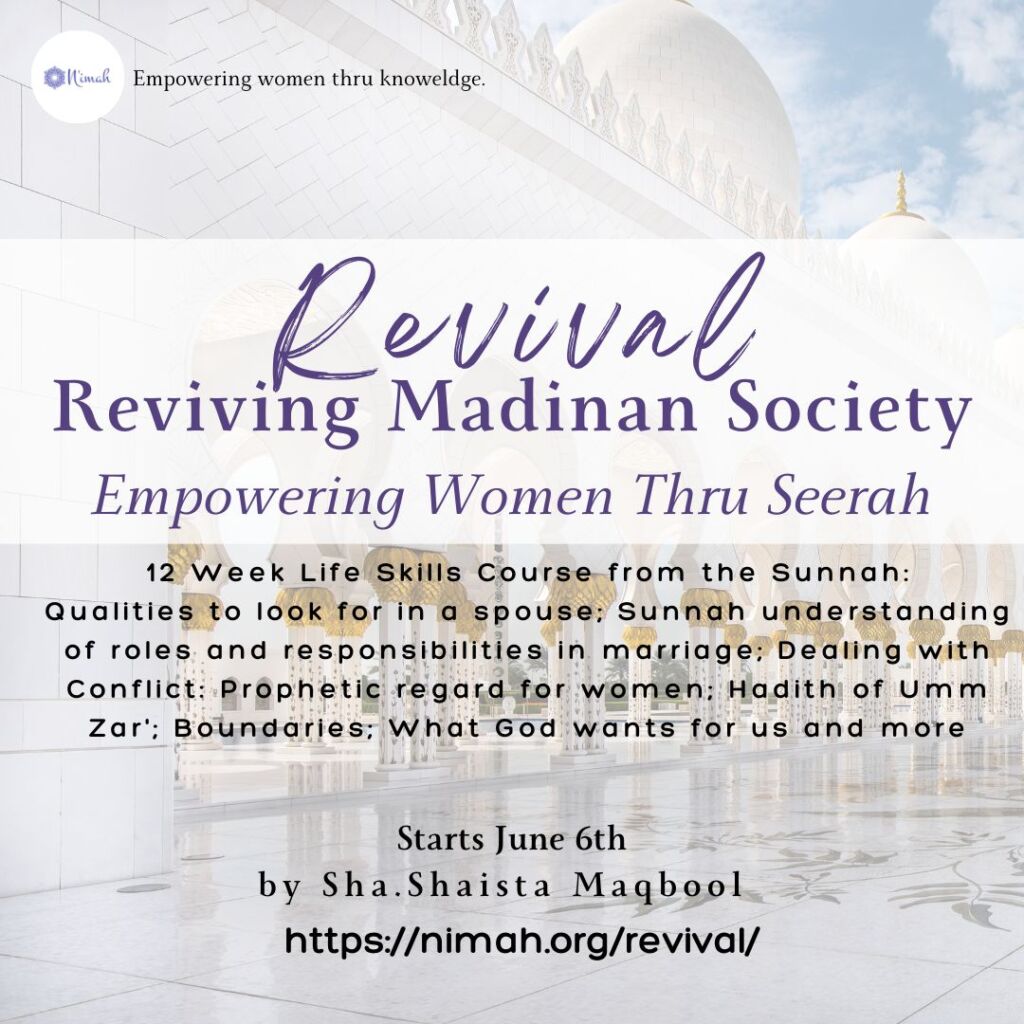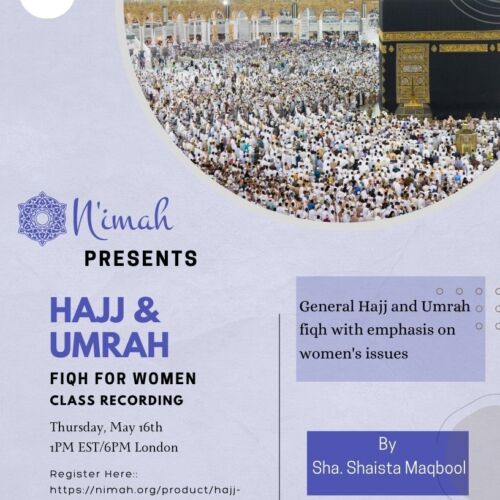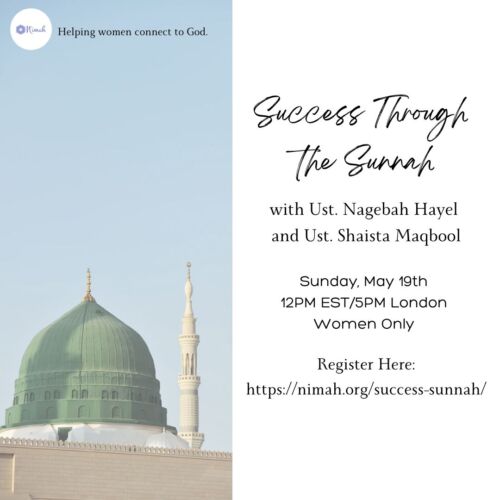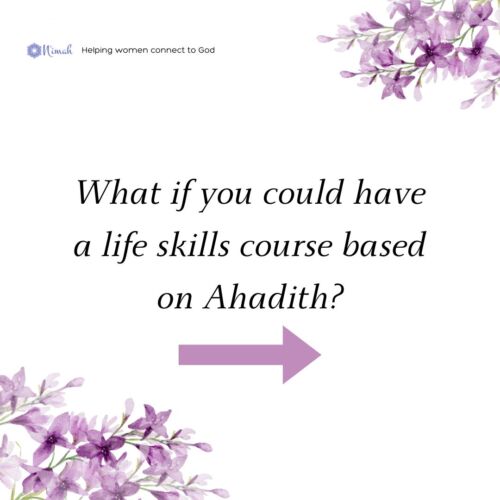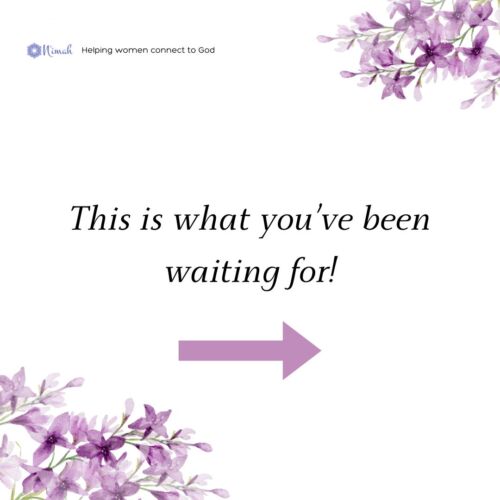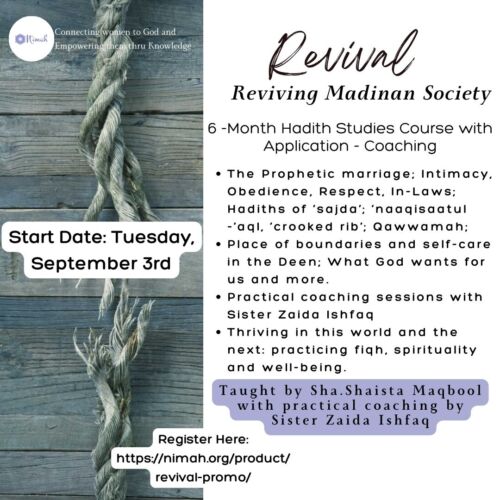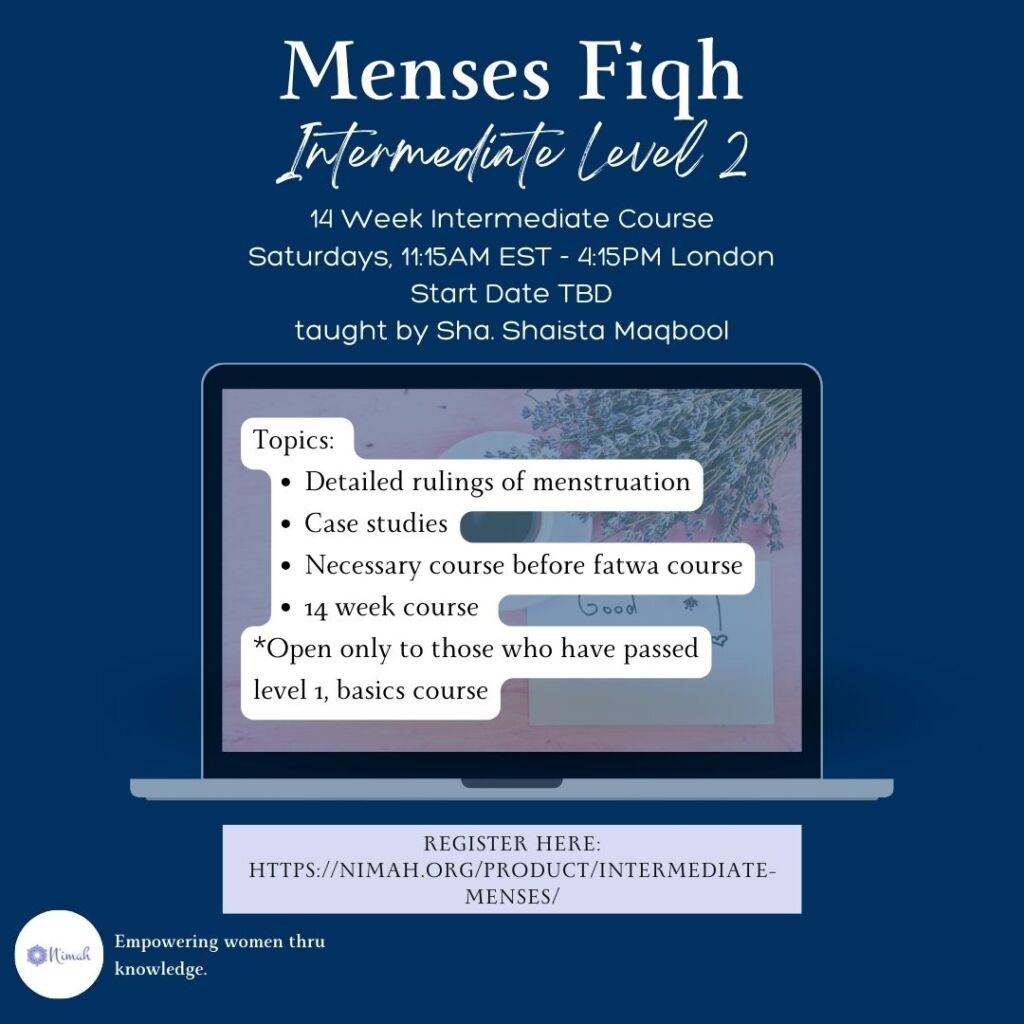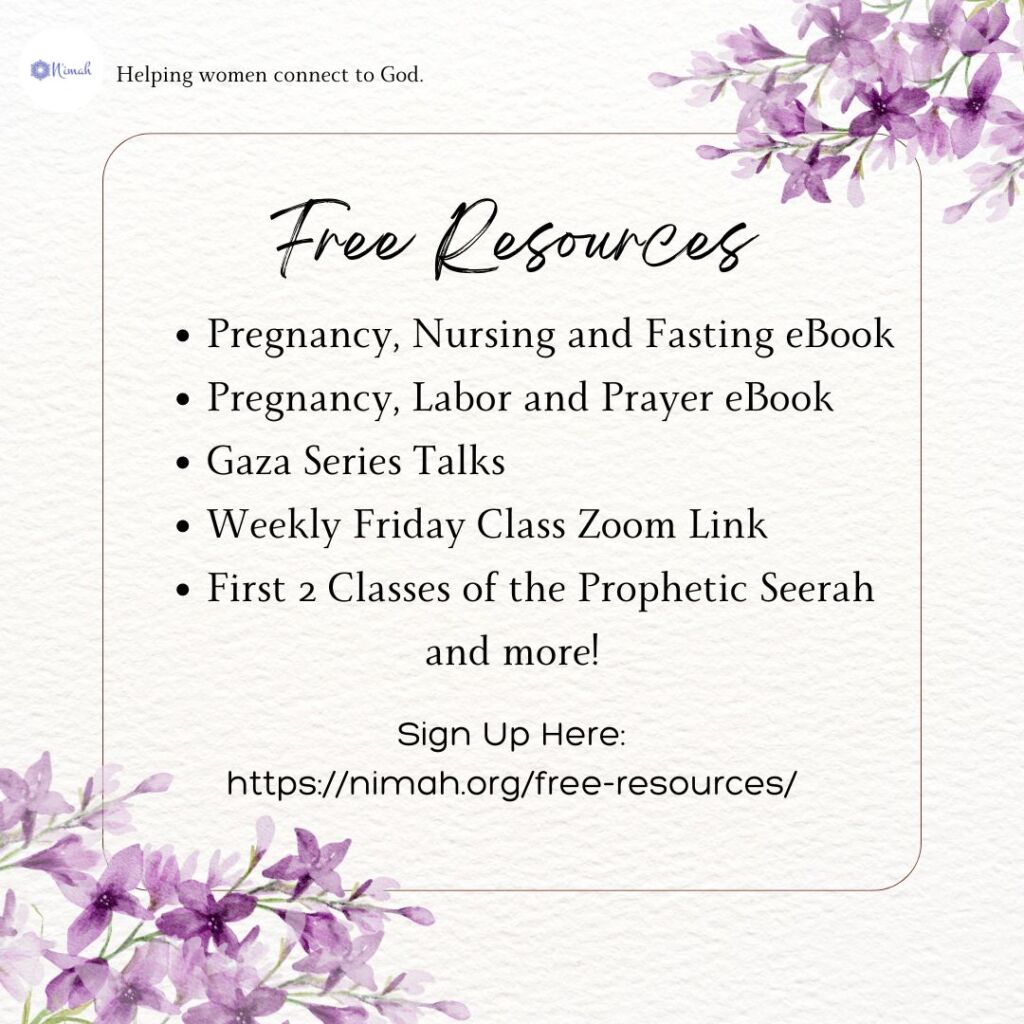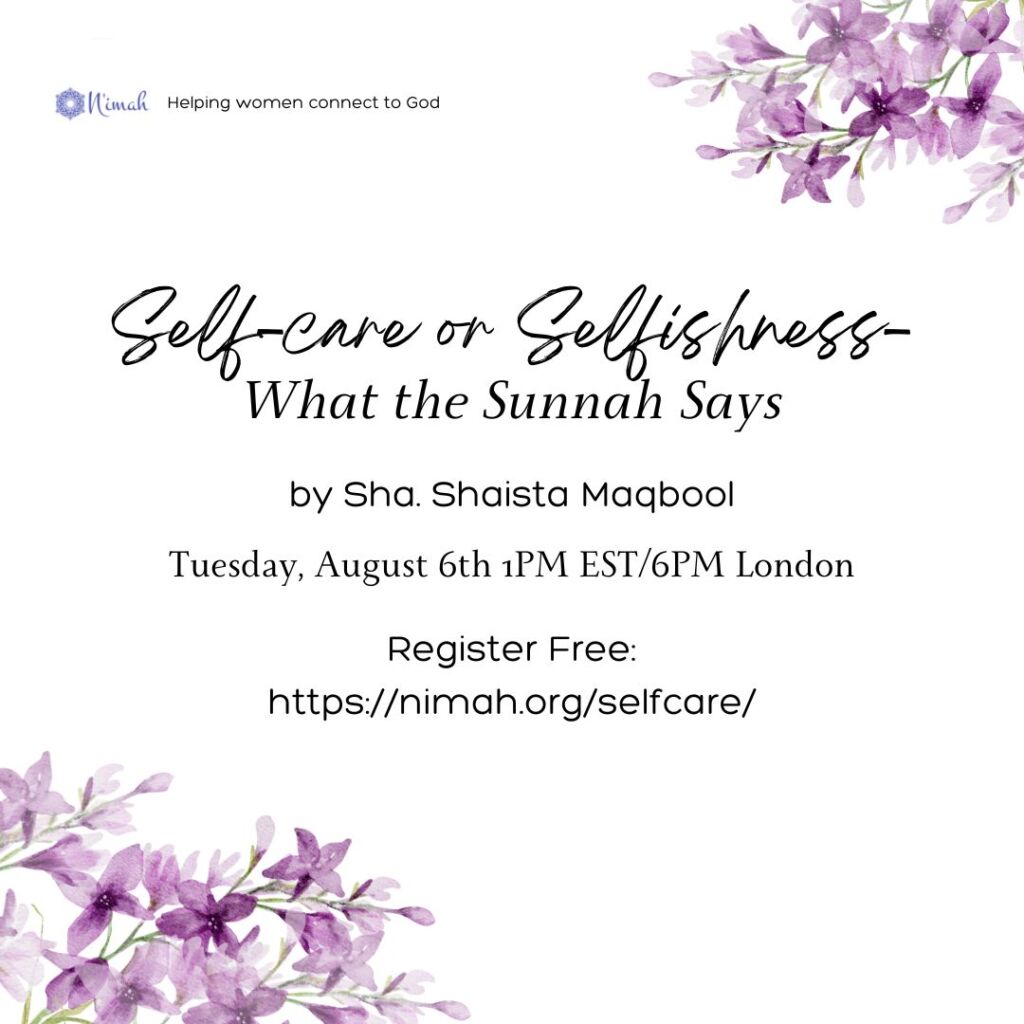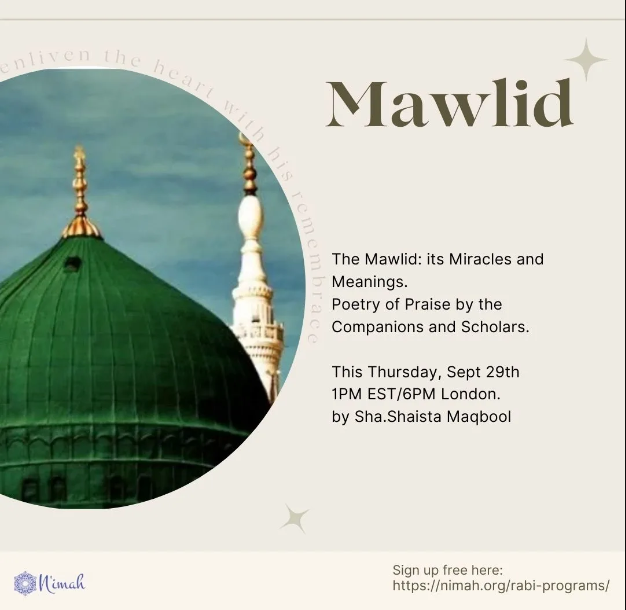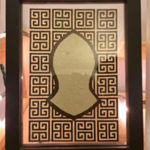
is a medium of teaching sacred knowledge to women by women teachers who have been taught by traditional scholars whose chains of transmission go back to the Messenger of Allah, ﷺ, his Noble Family, and Companions.
N’imah’s goal is to connect with Muslimaat who love Allah and His Messenger ﷺ to nurture and further this love through fiqh, seerah, talks, inspirations, and miscellanea.

12 Week Life Skills/In Depth Hadith Study Course for Women
Starts June 6th! Registration is open!
Via Zoom
Alhamduli Allah, after a successful 5-week course, Sha.Shaista will be doing a more detailed version of this course after Ramadan.
The course is open to married and non-married woman and will benefit both.
These are life skills you want to know before you’re married and need to know after.
Classes will be recorded for those who can’t attend live.
Upcoming + Resources
Intermediate Level 2 Menses Fiqh Course
14 Week Intermediate Course
Saturdays, 11:15AM EST – 4:15PM London
Start Date TBD
taught by Sha. Shaista Maqbool
Topics:
- Detailed rulings of menstruation
- Case studies
- Necessary course before menses fatwa certification course, which is a 6 month course with new case studies each week.
Sign up to join the waitlist and reserve your spot!
Free Resources
Access to various resources on a number of topics such as:
- Pregnancy, Nursing and Fasting eBook
- Pregnancy, Labor and Prayer eBook
- Gaza Series Talks
- Weekly Friday Class Zoom Link
- First 2 Classes of the Prophetic Seerah
and more!
by Sha. Shaista Maqbool
Figuring out what is menses versus what is irregular bleeding and when to pray/fast and all the rules in between…it can be very frustrating!
Schedule a 30 minute consult with Sha.Shaista Maqbool and she will go over your menses/blood history and give you a definitive answer on what you need to be doing.
Q & A
These questions, unless otherwise noted, have been answered by
Ustadha Shaista Maqbool
Yes, it is the same as a regular wudu. It is a sunnah (and not a requirement) to repeat the limbs of wudu in ghusl as it is required that one gets the entire outer body wet during ghusl.
If the following conditions are met, s/he is given a name, a ghusl, shrouded and prayed upon, as well as given the rights of inheritance:
– During/after birth there is presence of any signs of life, e.g: movement seen or vocal sounds heard during/after delivery (note: sounds or movements in the womb are not considered).
– If most of the body including the chest, assuming not a breech baby, was delivered.
– If at least all of the body, up to the navel was delivered, if born feet first (breech position.)
If, at birth there are no signs of life (as described above) but some human features are apparent, a ghusl is performed (per the preferred opinion) and the baby is wrapped in a cloth and buried. The baby is not prayed upon. The same rulings apply for a stillbirth.
If she has her own means of support, then no. If she needs support, then it would be obligatory on her awliyaa – her caretakers, who include her father, son, brother, uncle and so on. This is irrespective of whether her husband was able to provide for her or not during the marriage.
No. If they possess the zakatable amount (Niṣāb) in any wealth that is potentially zakatable, they are not eligible for zakah.
No, once the congregation is missed, there is no more Eid prayer.
If the person is considered to be holding the baby then the prayer would be invalidated, assuming the baby had najasah (filth) on them.
